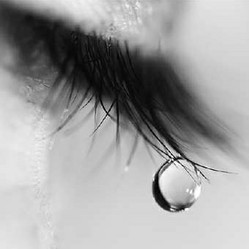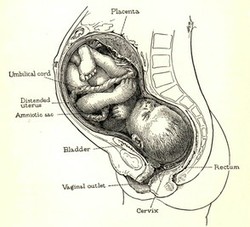Finding out that you have lost your baby is devastating. You'll have started to prepare yourself for having a child, and may have already told friends or loved ones that you are expecting. It's a hard loss to cope with, but it gets easier with time and support. So you've just received the news, what do you do now?

Coping with miscarriage
by Sethisis
A miscarriage is a hard, distressing event which takes time to recover from. Knowing that you are not alone, and that it will get better is very important.
Understanding Your Miscarriage
Every miscarriage is different, some women miscarry before realising they're pregnant, while others have had healthy scans in the past, then find out something's gone wrong.
While nobody knows what really causes this to happen, we do know that miscarriages are most common in the first trimester (12 weeks).
The first thing you need to know is that it's not your fault! Whether you followed the perplexing (and often contradicting) guidelines of what you should and shouldn't do during pregnancy or not, these things happen. Problems with pregnancy are very common, and it doesn't mean there's anything wrong with you. It also doesn't mean you won't be able to have a baby in future. Most hospitals will only begin to run fertility tests after three consecutive miscarriages, as this could be a sign of underlying problems.
Your doctor will be able to tell you what type of miscarriage you have experienced, and will probably give you leaflets and advice on what to expect.
The Miscarriage Process
This differs depending on how advanced the pregnancy is.
In early pregnancy you have the option to let nature take it's course, or have surgical management. It is your choice, you should choose whatever feels easier to you.
A natural miscarriage can take anything from a few days to a couple of weeks. You will feel fatigue, pain and heavy bleeding. It is similar to period pain, but unfortunately stronger.
If you choose surgical management, the foetal tissue will be removed in one go. You will feel some discomfort afterwards, and may experience a few days of bleeding.
In later pregnancy medical action needs to be taken. You can have surgical removal or induced labour.
In cases of induced labour or caesarian section, you may pass large blood clots and have lower abdominal cramping after the birth. Your body will take time to recover from this, and you might experience breast swelling and a change in hormone levels.
Dealing With Your Loss
It's important not to distance yourself from friends and family during this time. You and your partner will need some time alone to come to terms with what's happened, but talking to other people will help. There are lots of places for people to talk about their experiences online. Forums have been set up, where a caring community of members help each other through the rough patches and cheer each other on when things are improving. It's always worth talking to someone who knows exactly what you're going through, and you're bound to make new friends.
For the men going through this, it's a hard time for you too. Most men feel they need to be strong for their partners when this happens, and don't let themselves grieve. It's OK to cry, it's normal. Please don't try to avoid this, as women can interpret it as you not caring. You'll need to support each other and talk about how you feel.
While at first it seems the grief will consume you, each day gets a little easier. It helps to have a proper goodbye to your baby, which is often overlooked with early miscarriages. Anything from a quiet moment with your partner to releasing a balloon with the baby's name on it can help give you closure.
Trying Again
While doctors recommend you wait until you've had a normal period before trying to conceive again, it depends on how you feel physically and emotionally. While some women feel the need to replace the lost child quickly, others can't contemplate getting pregnant again for a long time afterwards.
Again, this depends entirely on how you feel. Miscarriage is tough on the body, you'll need to recover before going through the strains of pregnancy again. Take as much time as you need and don't let yourself feel pressured into anything.
After making the decision to try again, you can become quite anxious. Anxious about whether you'll be able to conceive, how long it will take, whether you'll miscarry again etc. This is normal. Of course you'll be concerned, but don't let it become an obsession. Relax, let things happen naturally and you'll be happier for it.
Thank you for reading
I hope this helped if you're experiencing/ have experienced a miscarriage. If you have any questions, or want to talk about it contact me and I'll be happy to help.
You might also like
25 Signs You May Be About to Go Into LaborThere are lots of signs that labor may be about to start. Here are some of th...
Low Lying Placenta - Problems, Precautions & SymptomsA low lying placenta is not uncommon - but of course it can cause worries for...



 The Extinction of UK Hedgehogson 05/22/2013
The Extinction of UK Hedgehogson 05/22/2013
 An Introduction to Minecrafton 04/19/2013
An Introduction to Minecrafton 04/19/2013
 What is Self Harm?on 03/26/2013
What is Self Harm?on 03/26/2013
 Moving Out for the First Timeon 04/02/2013
Moving Out for the First Timeon 04/02/2013


Comments
Very well written
Hi, thanks for the comment.
This is a tragic subject, but you've handled it with such sensitivity. Thank you for sharing it.